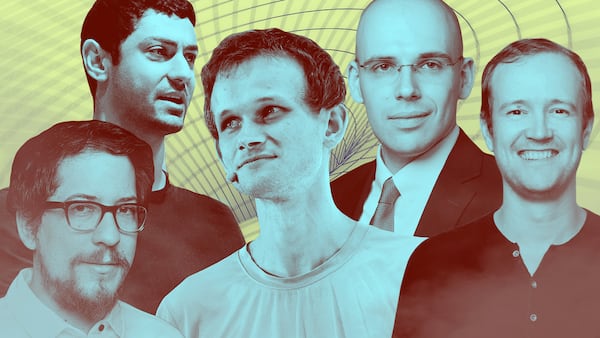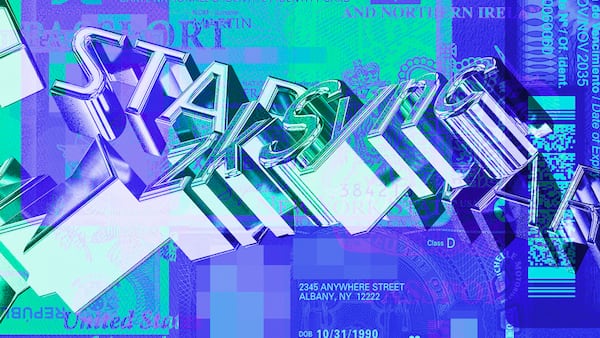- VCs appear poised to turn the page on a slow year with a fresh wave of investing in crypto.
- Projects utilising recent advances in technology are at the top of the list.
- Crypto infrastructure is a hot area.
It’s been a sluggish year for venture crypto investment.
Despite the total crypto market capitalisation almost doubling since January, VC funding in the sector still lagged behind 2022 levels.
This may be about to change as a new year opens with signs venture capital firms are poised to start deploying their cash en masse, said Chris Carapola, co-founder of Curvance, a DeFi protocol.
Best returns
Carapola told DL News that many of the VCs he spoke with ahead of Curvance’s recent $3.6 million fundraising planned to invest aggressively in crypto startups in 2024.
“They expect the best returns will be found in this time period,” he said.
At the top of venture capital shopping lists: crypto infrastructure.
“Investors tend to skew toward infrastructure early in the cycle,” Carapola said. It’s easier for venture firms to identify promising infrastructure providers than specific applications, such as DeFi protocols, he said.
In December, crypto infrastructure providers such as Shadow, Mocaverse, and Pyth Network have each executed substantial fundraising rounds.
And Carapola isn’t the only one to point out the shift.
“Infrastructure projects currently receive the lion’s share of venture capital deployment due to the straightforward narrative around ‘owning the base layer,’” Jack Melnick, head of DeFi at Polygon Labs, told DL News.
‘Soon we will see users interacting with permissionless smart contract applications through their mobile apps without even knowing it.’
— Gabriel Gareth Foo, Mantle Network
Melnick said many venture firms prefer a “scattershot approach” to investing in infrastructure to make sure they gain exposure to as many promising projects as possible.
And there are signs the focus on infrastructure will carry over into the new year.
“Much of our attention throughout 2023 has been on infrastructure and web3 gaming deals, and I don’t foresee us straying too far from this in 2024,” Carl Hua, CTO and investment partner at Shima Capital, told DL News.
But infrastructure deals are getting crowded, and it’s getting harder for venture firms to get into funding rounds for promising startups, Hua said.
The next generation of crypto tech
Within infrastructure investment, projects utilising the latest advancements in cryptography are among the most popular.
Gleb Dudka, principal at Greenfield Capital, told DL News that he sees plenty of startups working on restaking — staking the same assets across multiple networks to amplify trust — and Fully-Homomorphic Encryption, which will allow developers to create private smart contracts on top of public, permissionless blockchains.
Examples of restaking projects that have already secured funding include Babylon, a project that lets Proof-of-Stake chains like Ethereum use Bitcoin for staking, and EigenLayer, a protocol built on Ethereum that lets users restake Ether staked on the Ethereum mainnet.
Fhenix, the first blockchain powered by Fully Homomorphic Encryption, also successfully raised $7.5 million in September.
But perhaps the biggest technological advancement creating a stir in venture capital circles is a new transaction technique called intents.
Intents let blockchain users hand off transaction creation to a third party without relinquishing full control of the transaction. They will let users generate more efficient and varied kinds of transactions, and allow them to pay transaction fees using any asset in their wallet.
Zero-knowledge proofs
Gabriel Gareth Foo, DeFi growth lead at Mantle Network, said that advances in intents, as well as account abstraction and zero-knowledge proofs, will help abstract away much of the complexity involved with interacting with blockchains.
Account abstraction will help make transacting with crypto onchain more similar to using debit cards or payment apps like Venmo by letting the apps crypto users interact with handle transaction signing, removing the possibility for human error.
Zero-knowledge proofs, which have been a VC favourite for a while, are bringing big improvements in scaling and will help crypto users prove their credentials while keeping their data private and secure.
“Soon we will see users interacting with permissionless smart contract applications through their mobile apps without even knowing it,” Foo told DL News.
Such a prospect is a top priority, not just for investment firms but also for the broader crypto industry. For years, one of the biggest criticisms of using crypto applications has been its complexity and poor user experience, making it difficult to onboard new users.
Old favourites
While the current interest is firmly planted in infrastructure, this won’t be the case forever, said Carapola.
“As some of the new narratives begin to play out in the market, I expect we’ll see more VCs rotate into application-layer products, in particular DeFi,” he said.
DeFi protocols Carapola said he expects to gain popularity include those working on staking and restaking, like EigenLayer, and yield-bearing stablecoins, like Ethena Labs’ USDe.
Dudka, on the other hand, said Greenfield is keeping an eye on real-world asset protocols and prediction markets.
But for projects looking to raise, the path ahead may be more difficult than it has been over the past year.
According to Dudka, the number of high-quality projects is increasing, which means more competition for the limited supply of venture capital cash.
Have you joined our Telegram channel yet? Check out our news feed for the latest breaking stories, community polls, and of course — the memes.
Tim Craig is DL News’ Edinburgh-based DeFi Correspondent. Reach out with tips at tim@dlnews.com.







